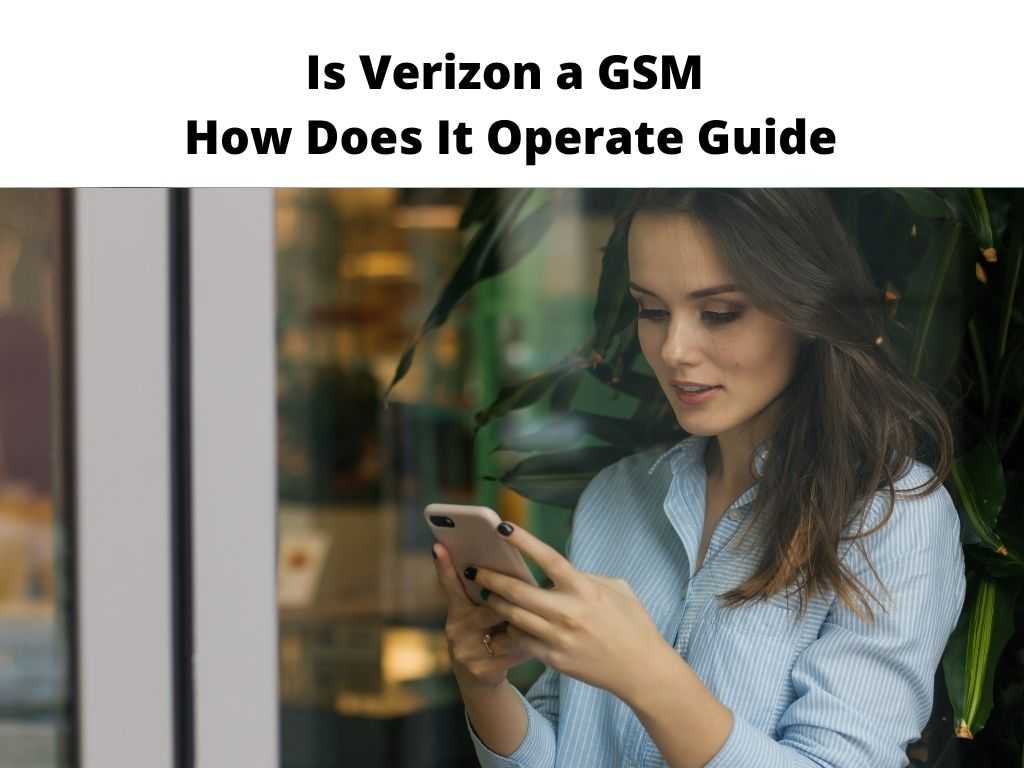So is Verizon a GSM? It’s a common question and many people want to understand it better. Let’s shed light on this issue.

TL;DR: Verizon, in essence, is not a GSM carrier. Instead, it operates on CDMA technology, which is fundamentally different from GSM. It’s crucial to note this difference when choosing a carrier or switching phones.
Scroll down to get a detailed answer
Table of Contents
The Basics: Understanding GSM and CDMA
Firstly, it might be worthwhile to consider what GSM and CDMA mean. GSM stands for Global System for Mobile Communications, while CDMA stands for Code Division Multiple Access. They are two primary types of network technologies used in cell phone services worldwide.
- GSM is used more universally and supports simultaneous voice and data use.
- CDMA, which is used by carriers like Verizon and Sprint, does not traditionally support simultaneous voice and data (although this has improved with newer technologies).
GSM uses a SIM card – a small, removable chip that stores user data and phone information. Conversely, CDMA attaches the phone’s information directly to the phone itself, not to a removable card.
Is Verizon a GSM Carrier?
To address the main question directly: No, Verizon is not a GSM carrier. It primarily operates on CDMA technology. That said, the lines between GSM and CDMA have blurred over time as new technologies, such as LTE and 5G, have emerged. These newer technologies are not strictly GSM or CDMA.
However, as of my knowledge, Verizon still utilized CDMA for its 2G and 3G networks, which would serve as a backup to its 4G LTE and 5G networks.
A useful suggestion would be to remember that although Verizon is not a GSM carrier, most modern Verizon phones come with an unlocked SIM card slot. This allows them to be used on GSM networks (like AT&T and T-Mobile) if the phone supports the appropriate bands and frequencies.
Understanding Your Phone’s Compatibility
For those considering changing carriers, it’s essential to be aware of your phone’s compatibility. Most modern phones, especially smartphones, support both GSM and CDMA technologies to some extent. This means they can technically work on any carrier, including Verizon, AT&T, or T-Mobile.
If you’re traveling internationally, GSM is the standard in many parts of the world, making GSM phones more globally compatible. CDMA phones, including those from Verizon, might not work on foreign networks unless they also support GSM.
However, not all phones will work optimally on all carriers. This is because each carrier uses different frequency bands for their networks. Your phone must support the specific bands that a carrier uses to function correctly on that carrier’s network.
So, if you’re considering a shift from a GSM carrier to a CDMA carrier like Verizon, I recommend checking your phone’s specifications to see if it supports the necessary CDMA bands. If it doesn’t, you might experience reduced coverage or functionality. The same goes for the opposite scenario: moving from Verizon to a GSM carrier like AT&T or T-Mobile.
As an expert tip, it’s also essential to ensure that your phone is unlocked. Carrier-locked phones are restricted to the carrier they were initially purchased from. If your phone is locked to a particular carrier, you would need to get it unlocked before you could use it on another carrier’s network.
The Future of GSM and CDMA
Looking towards the future, it’s worth noting that both GSM and CDMA are being phased out in favor of newer technologies like LTE and 5G. For instance, Verizon has plans to sunset its CDMA network, while AT&T has similar plans for its 3G GSM network. This progression means that in the future, the distinction between GSM and CDMA carriers will become less and less relevant.
In anticipation of this change, most new smartphones are now designed to support multiple types of network technology, including GSM, CDMA, LTE, and 5G. This means that, regardless of whether a carrier is traditionally GSM or CDMA, most modern smartphones can be used on any carrier, provided they are unlocked and support the carrier’s frequency bands.
Conclusion
In conclusion, while Verizon is not a GSM carrier, the landscape of network technologies is not black and white. With the rise of newer technologies like LTE and 5G, the differences between GSM and CDMA have lessened. However, it’s always important to check the specifics of your device and carrier when making decisions related to network compatibility.
FAQs
Is GSM Verizon or att?
GSM is a network technology, and AT&T uses it. Verizon does not use GSM; it primarily uses CDMA.
Is AT&T a GSM?
Yes, AT&T is a GSM carrier. It uses GSM for its 2G and 3G networks, and LTE for its 4G network.
Is Verizon a GSM unlocked phone?
While Verizon uses CDMA technology, most modern Verizon phones come with an unlocked SIM card slot, meaning they can potentially be used with GSM carriers, provided they support the necessary bands and frequencies.
Which phone networks are GSM?
In the United States, the primary GSM networks are AT&T and T-Mobile. Many international carriers also use GSM.


